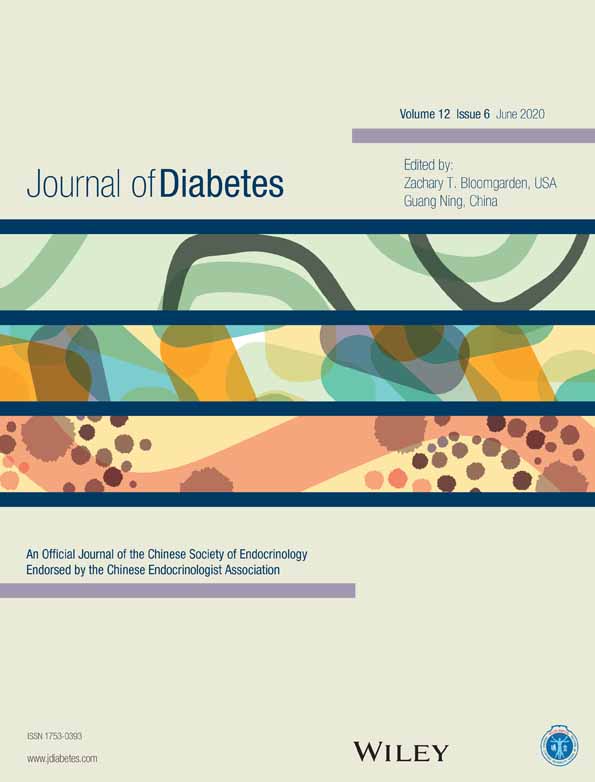Increased urocortin 3 levels are associated with the risk of having type 2 diabetes mellitus
尿皮质素3水平升高与患2型糖尿病的风险相关
Abstract
enBackground
Urocortin 3 (UCN3) is a peptide hormone playing a pivotal role in glucose and lipid metabolisms. However, its clinical implications remain unclear. Our aims were to investigate the altered levels of UCN3 in newly diagnosed type 2 diabetes mellitus (nT2DM) patients in comparison to subjects with normal glucose tolerance (NGT) and to determine the presence of any possible link between UCN3 levels and metabolic parameters.
Methods
Eighty nT2DM and 80 age-, body mass index (BMI)-, and gender-matched NGT subjects were enrolled into this case-control study. The circulating UCN3 levels were measured using the enzyme-linked immunoabsorbent assay (ELISA). Metabolic parameters of enrolled subjects were also determined. A standard 75-g 2-hour oral glucose tolerance test was used for diagnosis of type 2 diabetes mellitus (T2DM).
Results
UCN3 levels were higher in subjects with nT2DM than in controls (115.64 ± 39.26 vs 86.16 ± 22.81 pg/mL, P < .001). UCN3 levels were increased in subjects with metabolic syndrome compared to subjects without metabolic syndrome in both nT2DM and NGT groups. UCN3 levels showed a positive correlation with BMI in both groups. Moreover, UCN3 levels were positively and independently associated with insulin, fasting blood glucose, insulin resistance, 2-hour plasma glucose, glycosylated hemoglobin, and triglycerides, whereas UCN3 levels were negatively and independently associated with high-density lipoprotein cholesterol. According to logistic regression analysis, increased risk of T2DM and metabolic syndrome were parallel with the highest elevated levels of UCN3.
Conclusions
Increased levels of UCN3 are associated with unfavorable metabolic profiles in T2DM, indicating a potential role of UCN3 in glucose and lipid metabolisms in T2DM.
摘要
zh背景
尿皮质激素3(urocortin 3, UCN3)是一种在糖脂代谢中起关键作用的肽类激素。然而, 其临床意义仍然不清楚。我们的目的是研究新诊断2型糖尿病(nT2DM)患者与正常糖耐量(NGT)患者UCN3水平的变化, 并确定UCN3水平与代谢参数之间是否存在任何可能的联系。
方法
80例nT2DM患者和80例年龄、体重指数(BMI)、性别相匹配的NGT患者进入本病例对照研究。采用酶联免疫吸附试验(ELISA)测定循环UCN3水平。同时测定了受试者的代谢参数。使用标准的75g-2小时口服葡萄糖耐量试验用于2型糖尿病(T2DM)的诊断。
结果
nT2DM组患者血清UCN3水平明显高于对照组(115.64±39.26 vs 86.16±22.81pg/mL, P<0.001)。在nT2DM和NGT组中, 有代谢综合征的受试者UCN3水平均高于无代谢综合征的受试者。两组UCN3水平均与BMI呈正相关。此外, UCN3水平与胰岛素、空腹血糖、胰岛素抵抗、2小时血糖、糖化血红蛋白和甘油三酯呈独立正相关, 与高密度脂蛋白胆固醇呈独立负相关。根据Logistic回归分析, T2DM和代谢综合征的风险增加与UCN3升高的最高水平是平行的。
结论
UCN3水平升高与T2DM的不良代谢相关, 提示UCN3在T2DM的糖脂代谢中具有潜在作用。
CONFLICT OF INTEREST
The authors declare that they have no conflict of interest.




